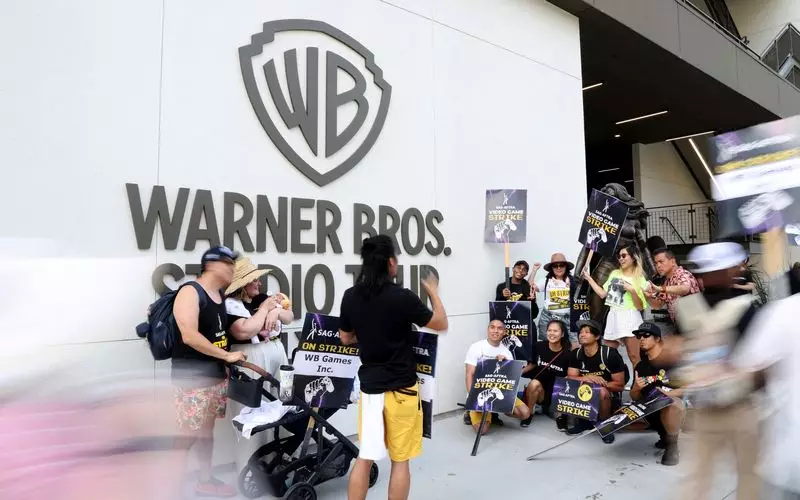Striking video game voice actors and motion-capture performers recently took to the streets in front of Warner Bros. Games to protest the increasing threat of artificial intelligence to their professions. These workers expressed their concern that AI technology was being used to replicate their voices and likeness without their consent, posing a significant risk to the future of their livelihoods.
The striking workers, led by voice actor Leeanna Albanese, highlighted the need for legislative protection against the unauthorized use of AI-generated replicas of their voices and personas. Albanese emphasized the importance of the NO FAKES Act, a bipartisan bill in Congress that seeks to outlaw the creation of AI replicas without the individual’s permission. This act has garnered support from various industry organizations, including the SAG-AFTRA performers union, The Recording Academy, and Disney.
The strike by video game voice actors and motion-capture performers is part of a larger trend in Hollywood, where concerns over AI technology replacing human talent are becoming increasingly prevalent. Workers in the entertainment industry are advocating for laws that can safeguard their identities and prevent the misuse of AI-generated content. The broader call to action across Hollywood underscores the need for comprehensive legislation to protect individuals from the potential abuses of AI technology.
The strike, which has affected major video game companies such as Activision Productions, Electronic Arts, and Warner Bros. Discovery, has drawn attention to the implications of AI technology on the gaming industry. While some analysts suggest that in-house studios and lengthy development cycles may mitigate the impact of the strike on certain companies, the overarching concern remains the potential threat that AI poses to human creativity and expression in interactive media.
Support from Industry Leaders
Leaders in the entertainment industry, including Grammy-winning artist Taylor Swift and Vice President Kamala Harris, have voiced their support for legislative measures that protect individuals from deep fakes and other forms of AI-generated content. The widespread recognition of the need for legal safeguards against abusive use of AI technology reflects a growing consensus among industry professionals and policymakers about the urgent need for regulatory intervention.
The strike by video game voice actors and motion-capture performers serves as a powerful reminder of the need to address the growing threat of artificial intelligence to the creative industries. By advocating for legislative protections such as the NO FAKES Act, these workers are taking a stand against the unauthorized use of AI technology to replicate their voices and personas. As industry leaders and policymakers rally behind their cause, the push for greater legal safeguards against AI-generated content gains momentum, highlighting the importance of preserving human talent and creativity in the face of technological advancements.

